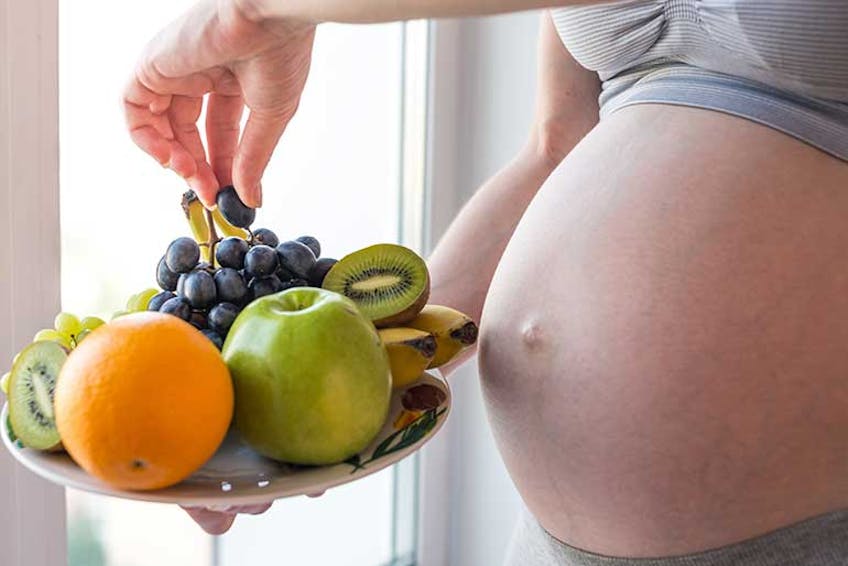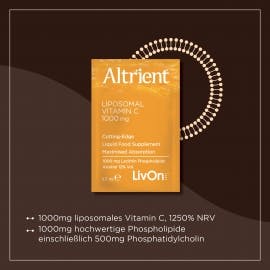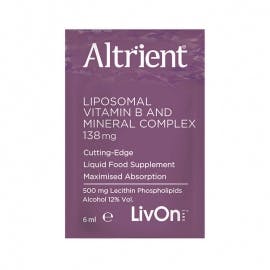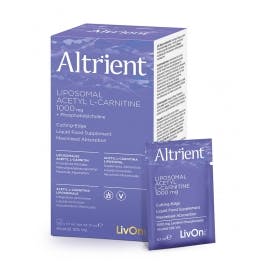Your ‘Must-Have’ Fertility Supplements
Why when we are living in such abundant lives in the West, with access to plentiful foods flown in from all over the globe, is our fertility on a downturn? Nutritional Therapist Angela Heap reveals why Altrient vitamin C, Altrient B and Altrient Acetyl L-Carnitine are at the top of her ‘must-have’ nutrients for preconception and beyond…
In October 2017 a report came out discussing male fertility over the last 45 years and the results were alarming. Sperm count was down nearly 60% from 1973 and as many as 1 in 6 couples suffer from infertility. Prior to this, funding and research focused heavily on females as the deciding cause of declining fertility. Assumptions are currently beginning to be made on why this steep incline has occurred in such a short timeframe. Many are looking to nutrition and lifestyle as a heavyweight contributor of this issue.
Food vs Fertility…
In the 21st century there is a huge amount of food available. But in providing such a wide choice and amount to feed burgeoning populations, quality may have suffered over quantity. Much of the conventional produce we eat today is thought to have lower nutrient levels than 50 years ago and is heavily contaminated with chemicals and hormones. The advent of processed food has also put a huge burden on the body, that was not really designed to eat this way. Some say this maybe the reason for lower fertility rates and why many are now opting for assisted methods for having children.
Diet + Supplements = Healthy Fertility
Dietary Guidelines in the UK state that your nutritional needs should be met through diet. However, for some people and situations, supplements are important to ensure all nutrients levels are achieved. The solutions to improving fertility could be as simple as changing your lifestyle and using both a healthy diet alongside some key nutritional supplements. In 1995 Surrey University published a study where they worked with over 300 couples who had previously had fertility issues. Based on nutrient needs, they applied a specific ‘fertility programme’ to all involved and this resulted in over 80% of the couples going on to have successful births.
Your Top Fertility Supplements
There is now a huge amount of scientific knowledge about how to target these nutrients through supplements to help balance hormones and improve fertility. When it comes to supplements it’s their carrier system that determines their speed of absorption and bioavailability. All Altrient supplements are designed to deliver maximised absorption, using a phospholipid carrier that allows these nutrients to get straight into the cells and as the outer layer of both sperm and egg is made of lipids this also supports a faster and more targeted delivery.
- Altrient liposomal vitamin C – is critical for the support of sperm and egg health and as a key antioxidant it helps ward-off oxidative stress. If oxidation happens this can result in degradation of both egg and sperm health and thus cause chromosomal damage. Vitamin C is also vital for supporting healthy development of the baby and supports placental health when the baby is in utero helping to prevent miscarriage.
- Altrient liposomal vitamin B and mineral complex – provides the full spectrum of B vitamins including Quatrefolic® a new generation folate that delivers increased bioavailability and plays a crucial role in preventing early midline defects like spina bifida. Altrient B also contains B12 and B6 that help support healthy DNA replication and hormone balance. Altrient B also contains minerals Selenium, Zinc and Chromium read more below…
- Altrient liposomal Acetyl L Carnitine - this amino acid has been shown to help support sperm motility and quality whilst protecting sperm against oxidative damage. It has also been shown to helpassist ovulation and pregnancy rates in women seeking fertility support.
- Selenium – this powerful antioxidant mineral is useful for both female and male fertility and is often found to be low with male fertility factor. Selenium helps to support thyroid health and thyroid disorders have been attributed to early miscarriage. Altrient B contains liposomal selenium.
- Zinc – important for both male and female fertility from supporting key hormones such as oestrogen, progesterone and testosterone, to supporting a healthy full-term pregnancy. Zinc also plays a key role in sperm health and low zinc levels have been linked to low sperm levels, poor motility and morphology. Altrient B contains liposomal zinc.
- Omega-3 – these ‘good’ fats help to support hormone balance and are an essential part of a nutritional fertility plan. Omega-3 status has also been linked to male fertility as it’s been shown that when sperm motility and count are low this could also correlate to low omega-3 levels.
Altrient B and Altrient C are a handy double act when it comes to preconceptual nutrient but these should always be taken alongside a healthy diet and healthy lifestyle for a holist approach to family planning.
Angela Heap
Angela trained at the College of Naturopathic in 2005 since graduating she has specialised in fertility, hormonal management and pregnancy. Angela uses many diagnostic tools to support her work, focusing heavily on testing and genetics as the key that opens the lock to infertility. Angela recently presented at the largest conference on Fertility and Pregnancy in London of its kind ‘The Gestational Journey’ speaking on ‘Nutrition a clinical approach to Fertility’ alongside many international fertility experts.
References
Declining Sperm count now 59% lower than 1973 https://academic.oup.com/humupd/article-abstract/23/6/646/4035689https://www.sciencedaily.com/releases/2017/07/170726110954.htm
IVF over the last few decades https://www.ncbi.nlm.nih.gov/pmc/articles/PMC1936357/
Preconception health and pregnancy outcomes a study of 387 couples https://www.tandfonline.com/doi/abs/10.3109/13590849509000218?journalCode=ijne20
B Vitamins – The importance of Methyl donors ( Folate and choline) in pregnancy https://www.ncbi.nlm.nih.gov/pmc/articles/PMC2628952/
B6 and the importance in pregnancy https://www.ncbi.nlm.nih.gov/pubmed/29529267
Vitamin C and pregnancy and placental health https://www.ncbi.nlm.nih.gov/pubmed/15607547
Vitamin C and sperm health https://www.ncbi.nlm.nih.gov/pubmed/28251671
Vitamin C and protection on egg health https://www.ncbi.nlm.nih.gov/pubmed/26966434
Acetyl L- Carnitine for Sperm Health - https://www.ncbi.nlm.nih.gov/pmc/articles/PMC4163266/
Acetyl L- Carnitine for Women - https://www.integrativepro.com/Resources/Integrative-Blog/2016/L-carnitine-and-Womens-Health
Low levels of Selenium, reproduction and Miscarriages https://www.ncbi.nlm.nih.gov/pubmed/21963101
Thyroid conditions and miscarriage https://www.ncbi.nlm.nih.gov/pubmed/29102040
Linked to low spermatozoa development https://www.ncbi.nlm.nih.gov/pubmed/26932683
Zinc crucial to fertilisation https://www.ncbi.nlm.nih.gov/pubmed/30122633
Omega 3 and reduced inflammation in pregnancy https://www.ncbi.nlm.nih.gov/pubmed/30293596
Omega 3 and Men’s Fertility https://www.ncbi.nlm.nih.gov/pubmed/30196939




.jpg?auto=format&q=45&w=262&trim=auto)

